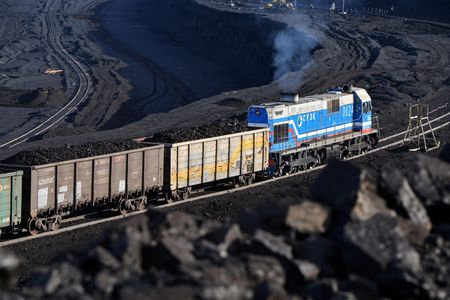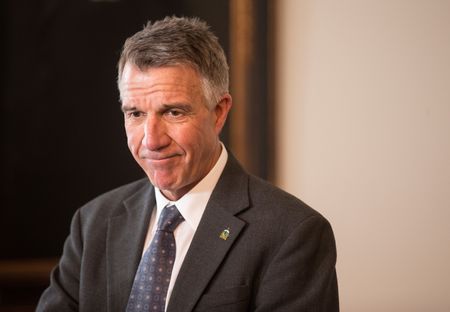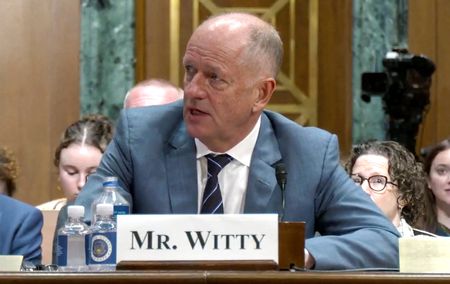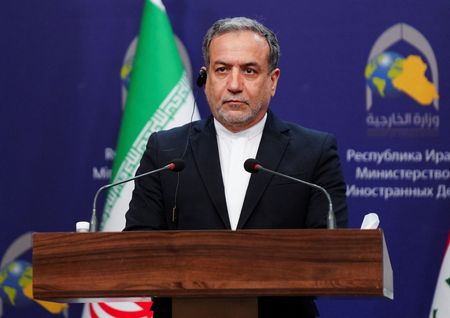By Gleb Stolyarov and Anastasia Lyrchikova
MOSCOW (Reuters) -Russia plans to support its coal industry with big discounts on rail transportation rates and guaranteed exports, according to a government letter seen by Reuters and reports from coal-producing regions.
Russia’s coal exports fell by 6% last year under pressure from Western sanctions, infrastructure disruptions and profitability issues, the International Energy Agency has said.
President Vladimir Putin in December ordered the government to develop support measures.
In a letter to Putin dated April 25, Deputy Prime Minister Alexander Novak blamed many factors: falling global coal prices, the stronger rouble, sanctions restricting supplies to traditional markets, increased logistics costs, import duties in China and India and payment complications.
A representative for Novak declined to comment.
Russia’s coal industry as a whole lost 112.6 billion roubles ($1.4 billion) in 2024, Novak wrote. As the sector’s financial health continues to deteriorate, 30 enterprises, employing roughly 15,000 people and producing around 30 million metric tons annually, are at risk of bankruptcy, he added.
Moscow has already signed an agreement to guarantee exports from Russia’s coal-rich region, the Kuznetsk Basin known as Kuzbass. Novak proposed doing the same with neighbouring Khakassia.
But more support is needed, the letter said, including a 12.8% discount on rail transportation fees for some coal exports and a 60% discount on long-distance coal transportation.
Novak also proposed subsidies for Russian Railways from the federal budget to cope with reduced revenues, but did not specify an amount.
The finance ministry and Russian Railways did not immediately respond to requests for comment.
Russian Railways’ cargo volumes last year fell to their lowest in 15 years.
The state-owned monopoly is cutting investment by around 40% this year while grappling with a jump in interest payments as the central bank has raised borrowing costs in an effort to tame inflation.
Washington has put most of Russia’s major coal companies under sanctions. With U.S., European Union and British bans on Russia’s coal imports in place, more than 80% of its exports now go to Asia.
Novak said starting high-level negotiations to abolish import duties on Russian coal was needed to strengthen Moscow’s strategic partnership with China and India against the backdrop of U.S. trade wars.
Novak also proposed creating a “specialised tool” through the VEB state development bank to restructure and rehabilitate producers, offer tax and insurance deferrals and introduce a special bankruptcy procedure for those beyond recovery.
VEB did not immediately respond to a request for comment.
($1 = 80.5000 roubles)
(Reporting by Gleb Stolyarov and Anastasia Lyrchikova; additional reporting by Darya Korsunskaya; Writing by Alexander Marrow; editing by Barbara Lewis)










